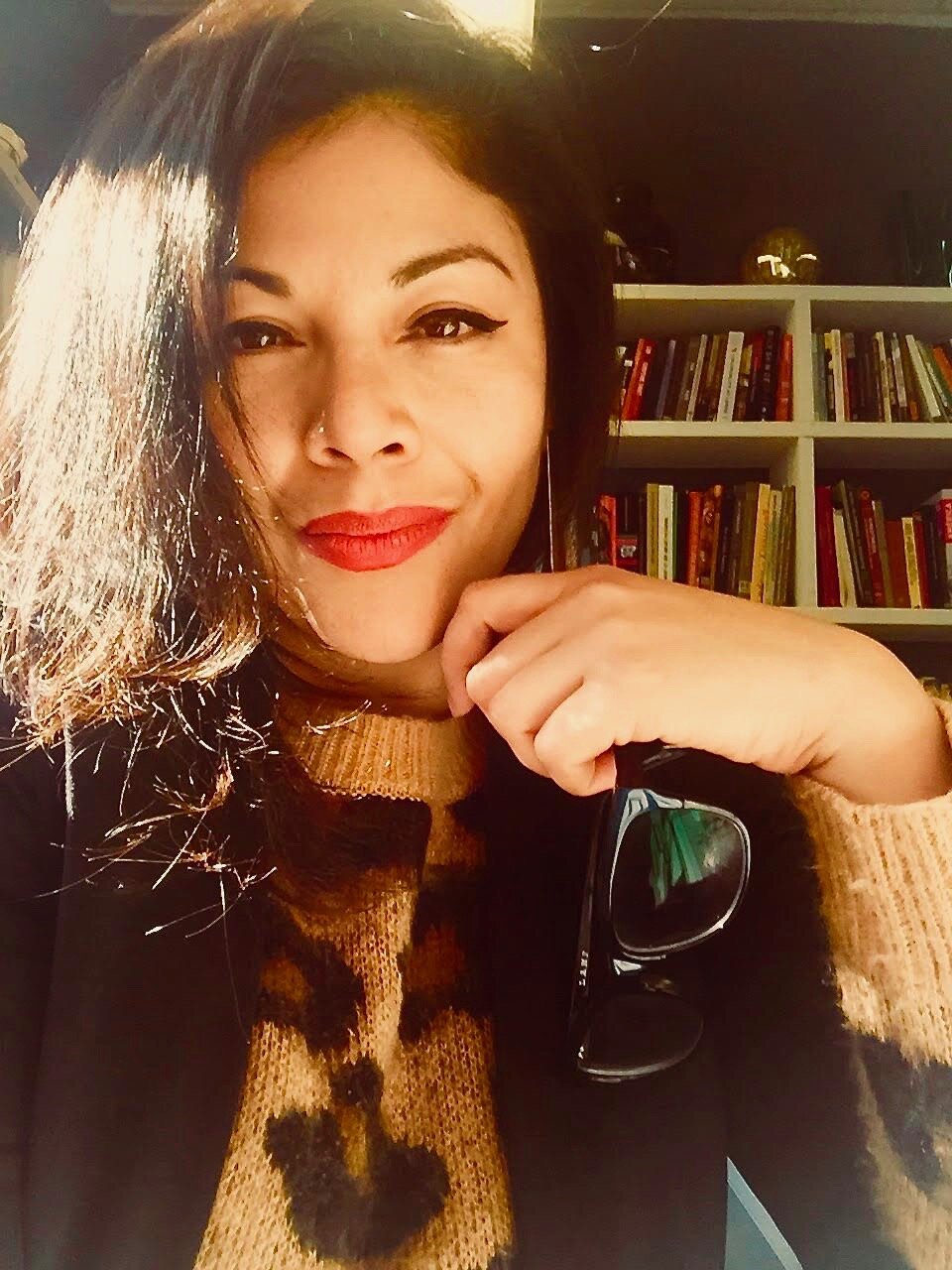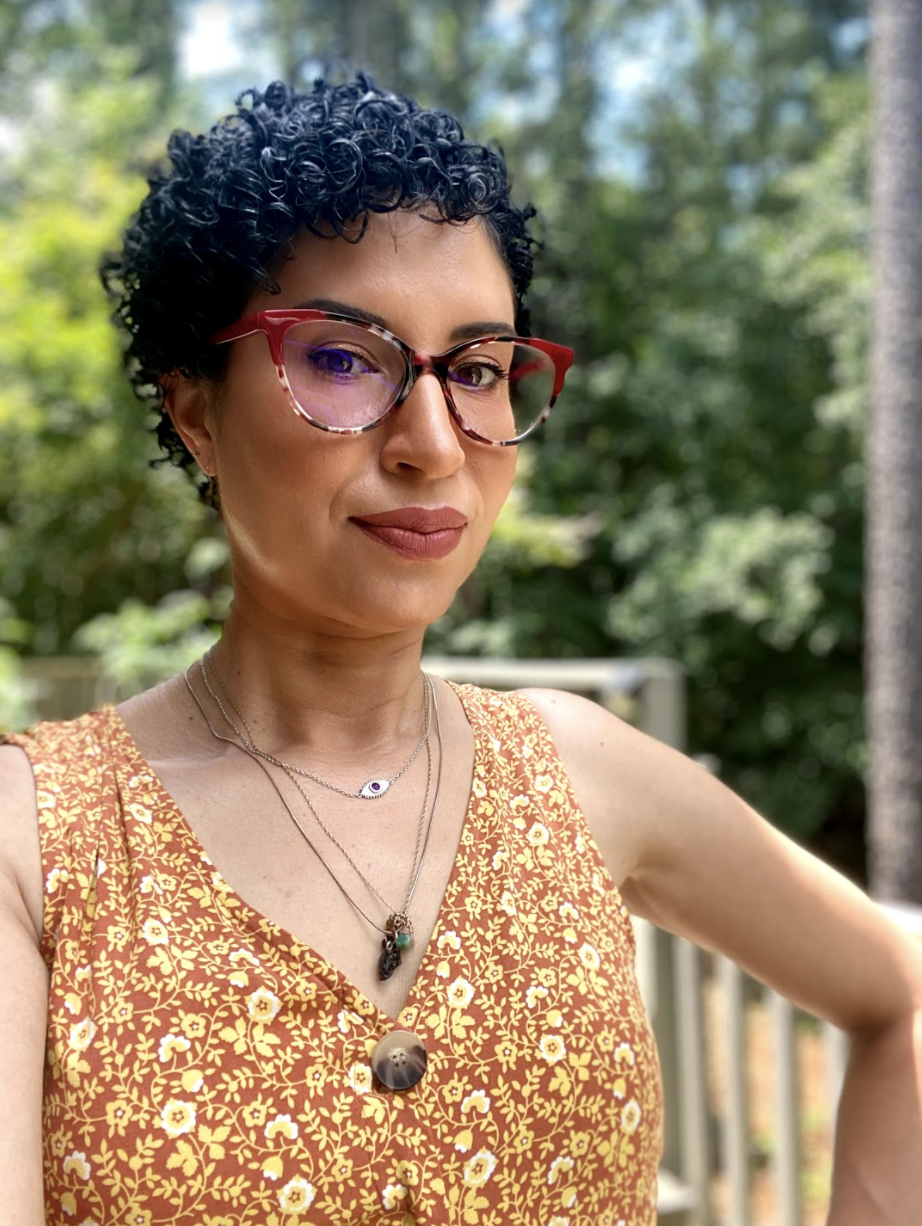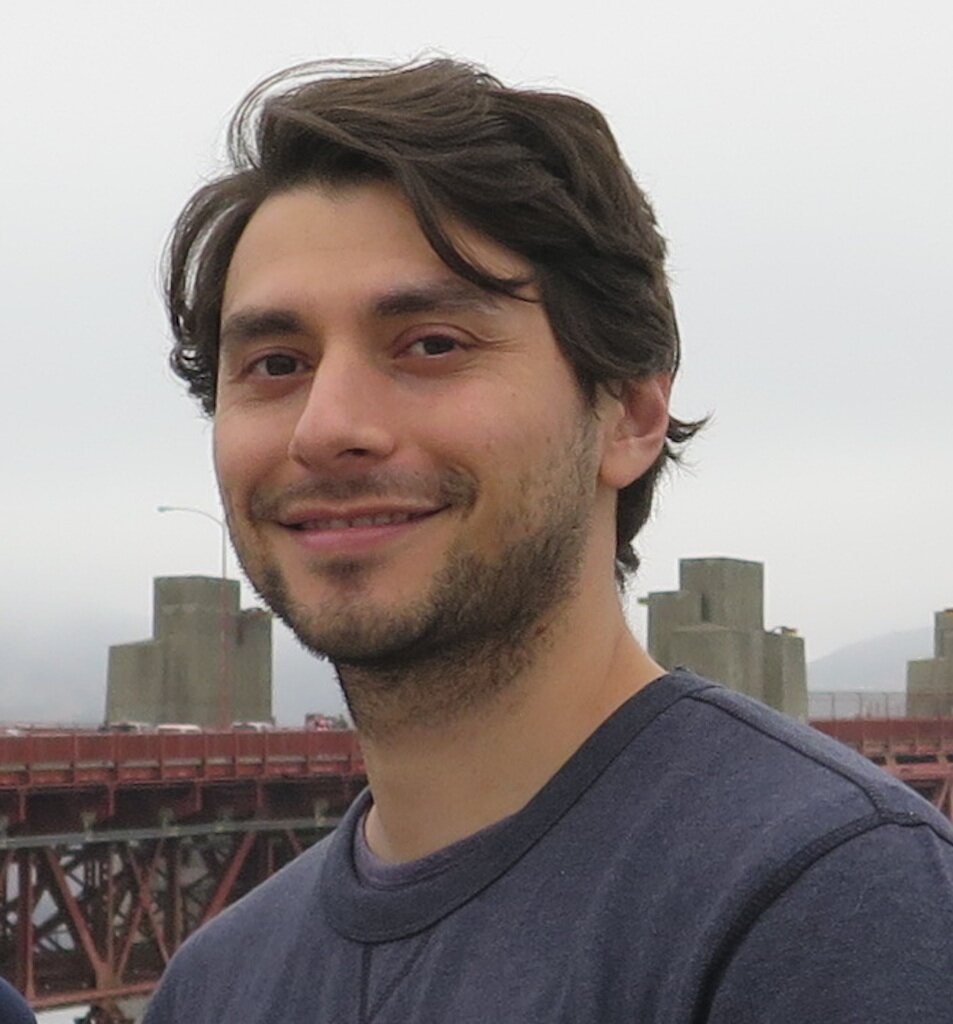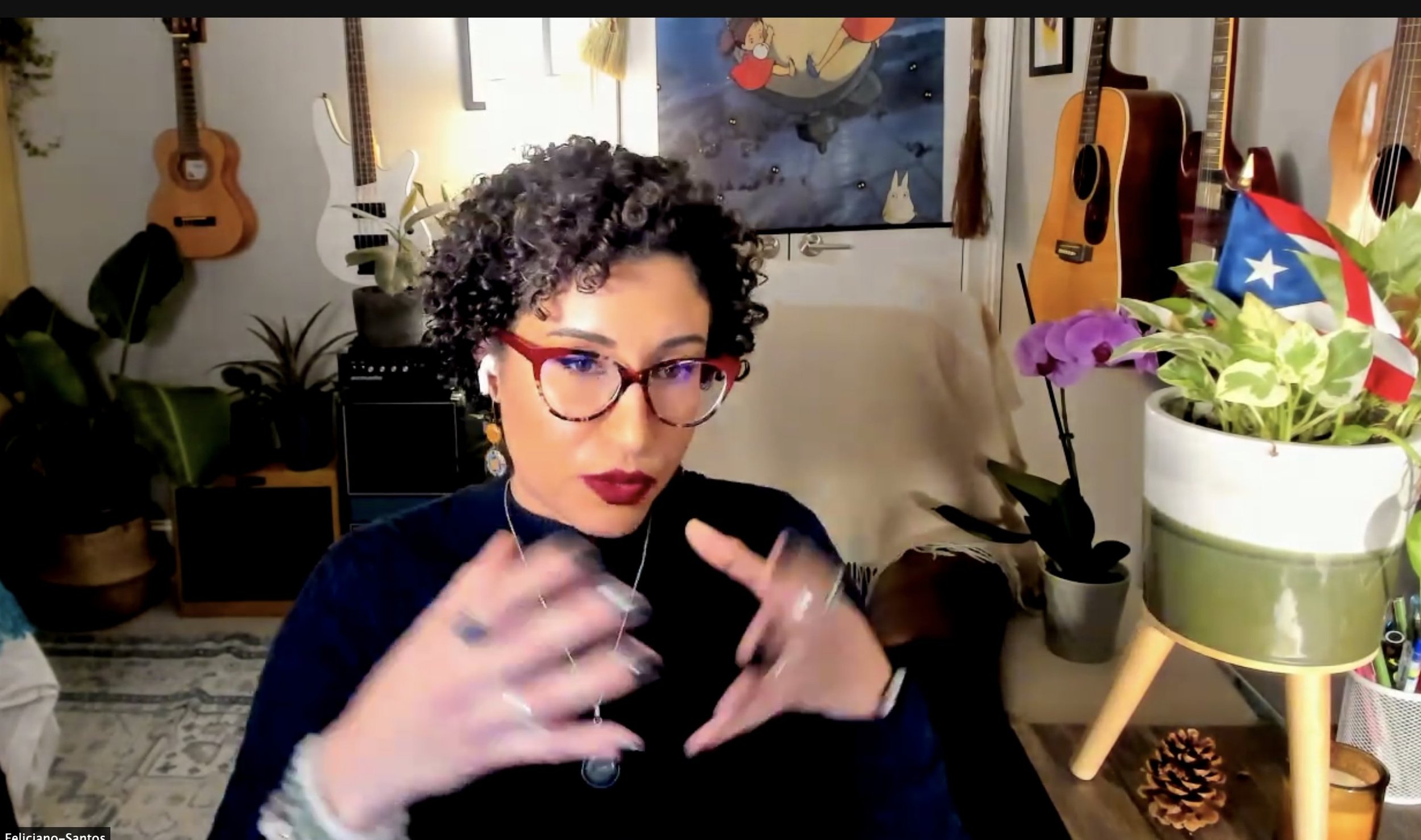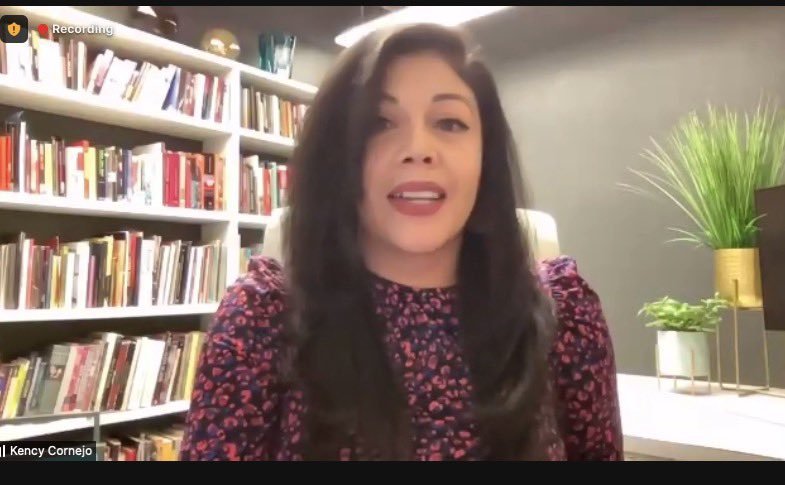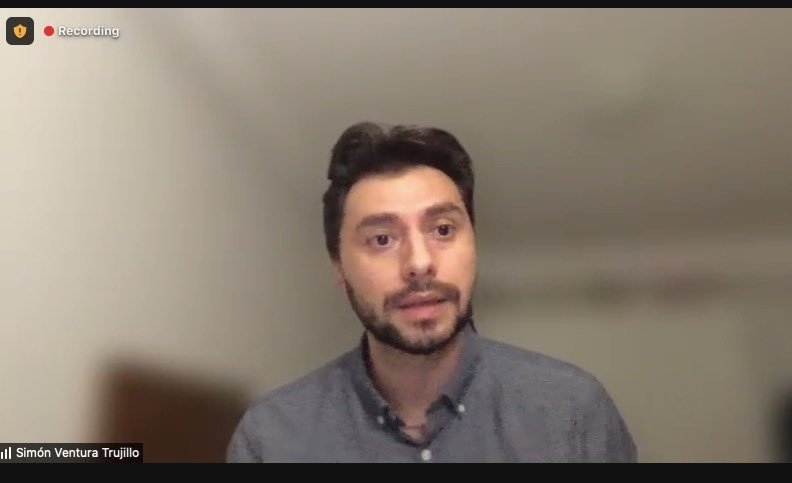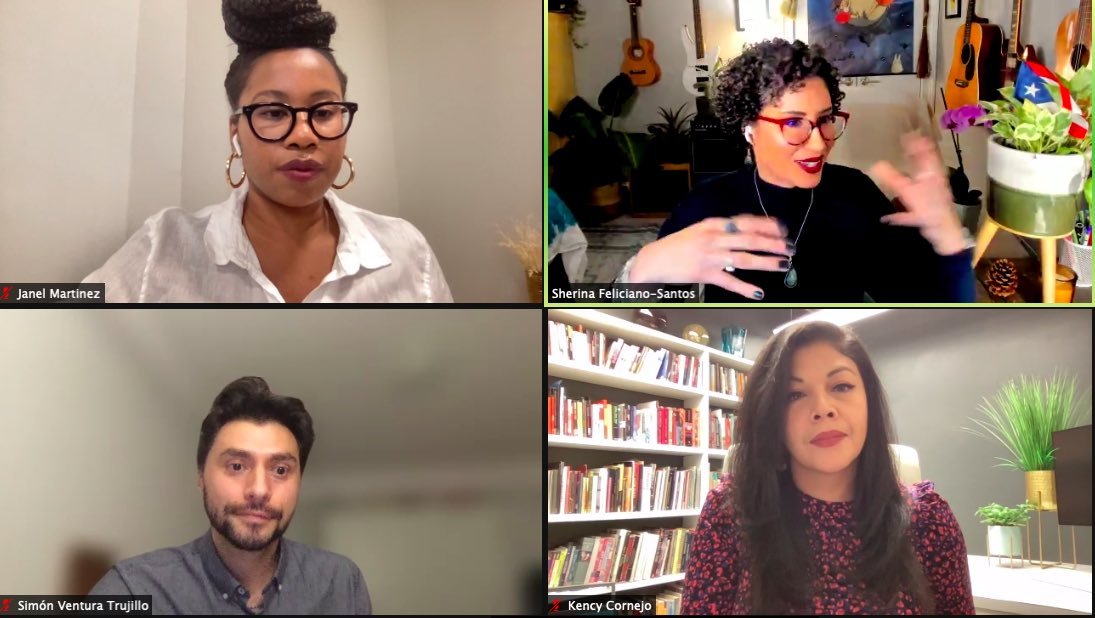The second annual forum on Critical Latinx Indigeneities features scholars whose research on Indigenous Latinx cultural politics pushes the boundaries of Latinx, Latin American, Indigenous, and Black studies to provide innovative analyses of race, gender, capital, and power in the contemporary moment. Their research points to the different ways that this field is challenging settler colonial logics of Native erasure, antiblackness, and migrant precarity while advancing transnational conceptualizations of solidarity, decolonization, and Indigenous continuance.
This event will be moderated by The Latinx Project events specialist Janel Martinez, whose writing centers Black Indigenous, more specifically Garifuna, existence.
This event is co-sponsored by the Native Studies Forum.
Panelists
Kency Cornejo is an Associate Professor of Contemporary Latin American Art History at the University of New Mexico. Her teaching, research, and publications focus on contemporary art of Central America and its US-based diaspora, art and activism in Latin/o America, and decolonizing methodologies in art. Some of her publications can be in the Journal of Latin American and Latinx Visual Culture; Journal of Commonwealth and Postcolonial Studies; Aztlán: A Journal of Chicano Studies; Art and Documentation; FUSE Magazine; and Oxford Research Encyclopedia of Literatures, among others. Her work has been supported by the Fulbright and Ford foundations, a Creative Capital | Andy Warhol Foundation Arts Writers Grant, and in 2020 was awarded a National Endowment for the Humanities (NEH) Faculty Award Grant.
Sherina Feliciano-Santos is an Associate Professor of Anthropology and Linguistics at the University of South Carolina, Columbia. Trained as a linguistic and sociocultural anthropologist, her research is committed to the nuanced study of the relationship among language, identity, history, and social action among differently racialized groups and persons. She attends to the different scales of racialization and ethnicization processes involved in structuring identification and power in her research on Indigenous cultural reclamation in Puerto Rico, on traffic stop arrests and policing in the U.S. South, and on migration, citizenship, race, and ideologies of language and the nation among Puerto Ricans in Puerto Rico, St. Croix, and the United States. She is the author of A Contested Caribbean Indigeneity (2021) published in the Critical Caribbean Studies series at Rutgers University Press.
Simón Ventura Trujillo is an Assistant Professor of Latinx Studies in the English Department at New York University. His book, Land Uprising: Native Story Power and the Insurgent Horizons of Latinx Indigeneity (University of Arizona Press, 2020), explores Indigenous land reclamation to rethink connections between Native storytelling practices and Latinx racialization across overlapping colonial and nation-state forms. It centers on the cultural production of the New Mexican land grant reclamation movement, La Alianza Federal de Mercedes. A formative organization of the Chicanx movement known for its armed raid of the Tierra Amarilla courthouse in 1967, La Alianza waged a dynamic and controversial campaign for the recovery of Mexican and Spanish land grants that had been lost in the aftermath of the Mexican-American War in the mid-19th century. This book situates La Alianza’s writings alongside a heterogeneous archive of Indigenous and feminist borderland literature by Leslie Marmon Silko, Ana Castillo, Simon Ortiz, and the Zapatista Uprising in Chiapas, Mexico. In doing so, his work explores unexamined intersections between Indigenous, Chicanx, and Latinx cultural politics and contributes to critiques of colonial modernity and settler sovereignty in the Americas. Professor Trujillo teaches courses on Latinx Studies, American ethnic literatures, 20 th century literature and culture, intersectional theories of race, indigeneity, and decolonial social movements. His pedagogy engages the practices of textual analysis, writing, and collaborative research to study how the social construction of identity—including race, gender, sex, class, and nationality— occur as a function of language. His students explore how work on language generates alternative identities, histories, and spatial imaginaries that resist historic forms of oppression and inequality.
Image featured on 'A Contested Caribbean Indigeneity: Language, Social Practice, and Identity within Puerto Rican Taíno Activism' by Sherina Feliciano-Santos
Event Recap
On November 9th, the Latinx Project had the honor to host the second annual forum on Critical Latinx Indigeneities. The forum featured scholars whose research in the field is not only challenging settler colonial logics, Mestizaje, migrant precarity, erasure, and anti-Blackness. Professors Kency Cornejo, Sherina Feliciano-Santos, and Simón Ventura Trujillo are also thinking about and engaging with communities and artists on how Indigeneity is being reclaimed, visibilized, and celebrated. Professor Kornejo pointed us to the work of Indigenous artists like Sandra Monterroso (Maya-Q’ekchi), Marilyn Boror Bor (Maya-Kaqhickel), and Edgar Calel (Maya-Kaqhickel). Professor Feliciano-Santos referenced her work with Indigenous Puerto Rican communities in NYC and Professor Ventura Trujillo shared a little bit about his own journey learning about his family while in graduate school and recommends reading Almanac of the Dead by Leslie Marmon Silko. This cohort of phenomenal scholars inspires us to continue thinking about who gets to (re)claim Indigeneity and how this comes to be. We thank them for their work in carving new spaces to think critically about Latinx Indigeneities.
For more, watch the recording below!
Left to Right: Sherina Feliciano-Santos, Kency Cornejo, Simón Ventura Trujillo, and Janel Martínez on top left image.


